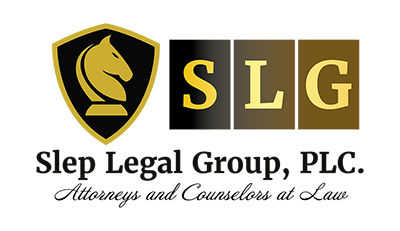What Michigan Residents Should Know About Driver's License Restoration
Michigan residents should understand that driver's license restoration is a legal process that requires specific documentation, adherence to strict deadlines, and often professional legal assistance to navigate successfully. The process involves demonstrating sobriety, rehabilitation, and the ability to drive safely without endangering public safety.
Slep Legal Group, PLC helps Michigan residents throughout the driver's license restoration process, providing expert guidance and representation to restore driving privileges and regain independence.
What Are the Requirements for License Restoration in Michigan?
Michigan's driver's license restoration requirements include completing substance abuse treatment, maintaining sobriety for a specified period, providing documentation of rehabilitation efforts, and demonstrating current sobriety through testing and evaluation. The specific requirements depend on your driving record and the nature of your license suspension.
You'll need to gather extensive documentation including treatment records, AA attendance records, letters of support, and medical evaluations. The process also requires appearing before a hearing officer who will evaluate your petition.
How Long Does the License Restoration Process Take?
The license restoration process typically takes several months from initial petition filing to final decision, depending on case complexity and hearing availability. Preparation time before filing can take additional weeks to gather all required documentation and evidence.
Professional license restoration attorneys can help streamline the process by ensuring all documentation is complete and properly presented, potentially reducing delays and improving success rates.
What Happens if Your Restoration Request is Denied?
If your license restoration request is denied, you can appeal the decision or wait to reapply after addressing the issues identified in the denial. Understanding why the request was denied helps determine the best next steps and timeline for reapplication.
Common reasons for denial include insufficient sobriety time, inadequate documentation of treatment, concerns about ongoing substance abuse, or failure to demonstrate genuine rehabilitation and commitment to sober driving.
How Michigan's Strict DUI Laws Affect License Restoration Strategies
Michigan's comprehensive approach to drunk driving prevention includes some of the nation's strictest license suspension penalties, making the restoration process particularly challenging. Multiple offenses result in increasingly severe penalties and longer suspension periods that require extensive rehabilitation documentation.
The state's emphasis on protecting public safety means hearing officers carefully scrutinize all restoration requests. They look for genuine rehabilitation, not just technical compliance with minimum requirements. This approach requires thorough preparation and often professional legal representation.
Michigan's ignition interlock requirements and restricted license options provide pathways back to full driving privileges, but these programs have specific compliance requirements that must be carefully followed to avoid setbacks in the restoration process.
Ready to restore your Michigan driving privileges? Contact Slep Legal Group, PLC at (989) 750-1903. Since 2018, our team has helped Michigan residents navigate the complex license restoration process, providing expert guidance and representation to help clients regain their independence and driving privileges.
